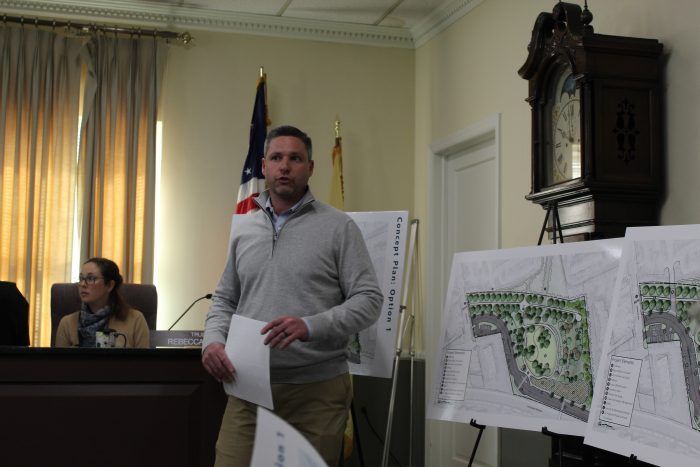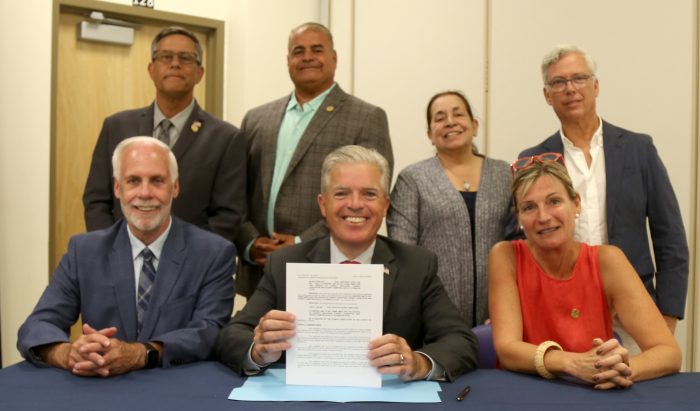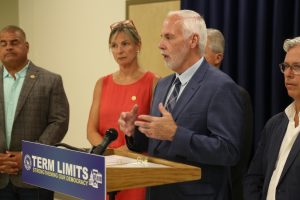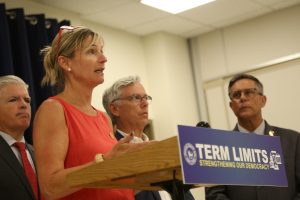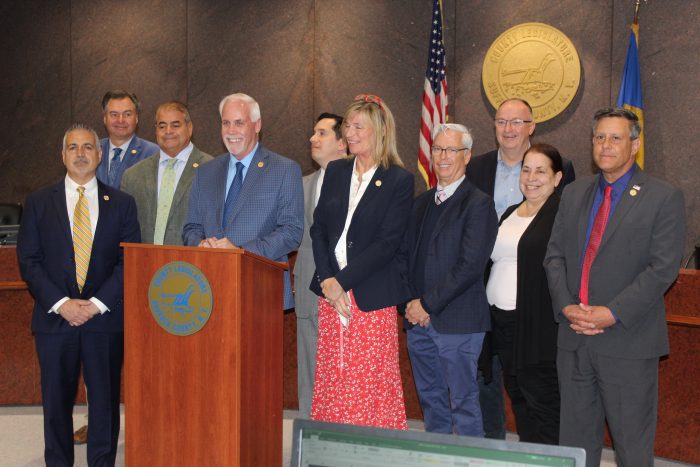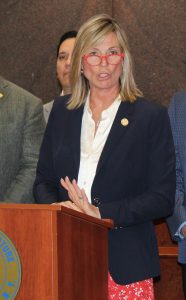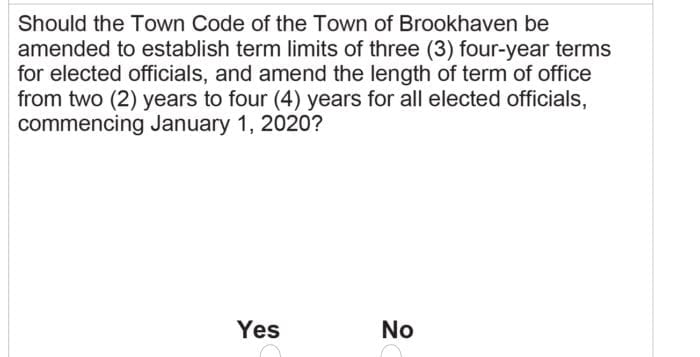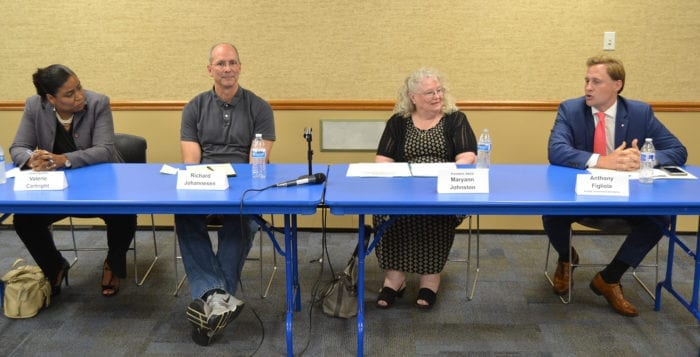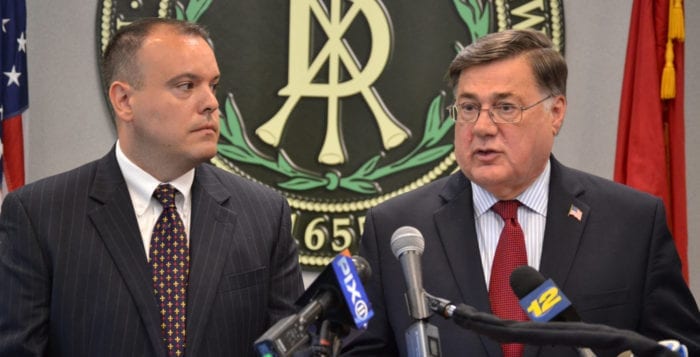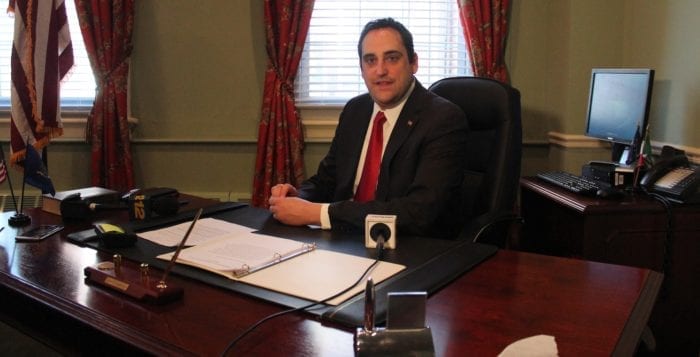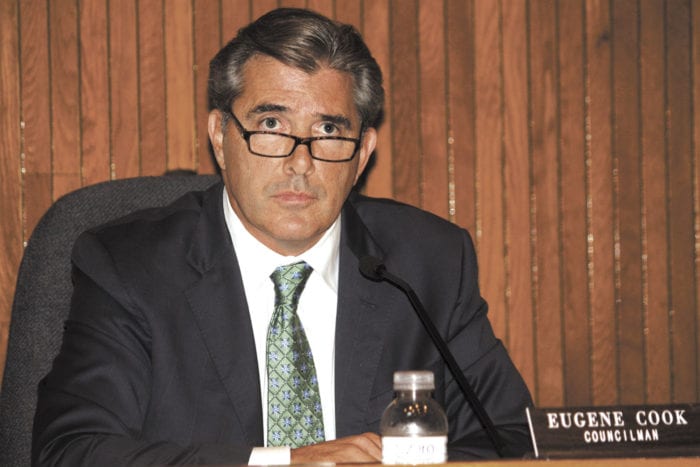With an approaching May 1 public hearing on the Maryhaven Center of Hope property on Myrtle Avenue, tensions are simmering within the Village of Port Jefferson Board of Trustees.
During an April 18 business meeting, trustee Lauren Sheprow clashed with Mayor Margot Garant and members of her administration over “the process” in which potential zoning code changes have been handled to date. This dispute comes as the village enters the heart of election season, with decisions over term extensions, term limits and election administration hanging in the balance.
The Six Acre Park Committee also inched closer toward a concept plan for the last remaining tract of undeveloped open space in Upper Port.
Maryhaven
As the village board prepares for the highly anticipated May 1 public hearing, Sheprow is at odds with some of her colleagues over how decisions with the property have been advanced. “I’m wondering about the process,” she said.‘We’d like to see the building be maintained or preserved somehow.’
— Margot Garant
Responding, Garant said deliberations over Maryhaven predate Sheprow’s entry to the board in July 2022 as the previous board held a work session approximately 18 months ago with Alison LaPointe, former special village attorney for building and planning. At the time, LaPointe had advised the board to consider rezoning the property, the mayor said.
Gradually, the matter has become a question of historic preservation as maintaining the existing building is in the village’s interest, Garant added.
“We’d like to see the building be maintained or preserved somehow,” the mayor said.
Village attorney Brian Egan gave additional context, saying the process began in 2019 when Catholic Health notified the village it would sell the property. The issue, Egan noted, lingered for some time though Garant started pushing for the structure’s preservation.
“It became the village’s initiative — the mayor’s initiative — of engaging with Catholic Health, saying, ‘We’re going to work toward trying to save that building,’” Egan said. “That was really impetuous and got us to this point to say, ‘How can we save the building for an adaptive reuse as opposed to putting it all into a landfill.’”
He continued, “The policy of the Village of Port Jefferson — hopefully, if this board adopts it — is to preserve the historic building that’s on it and encourage its adaptive reuse as opposed to demolition.” Egan added, “The ideal process is to draft the zoning that this board wants to see, and make the developers work to that standard.”
Sheprow expressed her appreciation for Egan’s clarification, adding, “I appreciate that explanation very much, just would have loved to have had that before opening it up for a public hearing so that we all kind of understood the entirety of the concept.”
The board agreed to set a work session on Tuesday, April 25, at 2 p.m. to discuss the matter further.
Elections
Trustee Rebecca Kassay reported she had received resident interest in creating a task force to oversee the restructuring of village government and elections, exploring issues such as term limits and extensions, change of election month and counting ballots by hand or machine.
Sheprow shared that PJV is working to obtain a document from the Village of Southampton for reference. Southampton “had a panel that went through this process,” she said. “So maybe we can use that document as a guide to help look at best practices.”
Conversations surrounding election changes were prompted by a notification from the Suffolk County Board of Elections that its electronic voting machines would not be made available to the village, to be used instead for primary elections this June.
Sheprow inquired whether the village could rent or purchase voting machines to administer the upcoming June 20 election for village mayor and trustees, especially as at least two other Long Island villages will be using such devices.
Egan clarified the legality of this proposal. The village attorney cited the New York State Election Law, which bars villages from renting machines from vendors outside their county BOE.
“It’s not a question of the integrity of the machines,” the village attorney said. “It’s a question about whether the Election Law will allow us to do it, and the Election Law is very clear that it does not, and [the New York Conference of Mayors] is very clear that it does not.”
Six Acre Park
The Six Acre Park Committee met with the board, along with representatives of the Hauppauge-based civil engineering company VHB, toward finalizing conceptual plans for the 6-acre parcel along Highlands Boulevard.
Garant outlined the committee’s purpose and the current status of the project. “The whole reason why we got this structure in place with the committee and the design team of VHB is because there’s a New York State grant that we are positioning ourselves to make an application for,” the mayor said. “We’re just trying to get to that point where we have what we need to make a submission.”‘Projects like this have been proven to greatly increase the safety and security of an area.’
— Rebecca Kassay
Andrew Kelly, a VHB landscape architect, presented three concept plans to the committee and board. Kelly said most spaces within the 6 acres would be open, tree-lined areas with native plantings. All options accommodate a realignment of, and on-street parking along, Highlands Boulevard.
Plans are to include security lighting, Kelly said. Kassay, trustee liaison to the Six Acre Park Committee, added that transitioning this area into parkland would discourage people from camping on-site.
“Projects like this have been proven to greatly increase the safety and security of an area,” she said.
The next steps are to decide upon a conceptual plan, likely integrating elements of all three concept proposals presented during the meeting. The mayor added that the board would soon return for a final round of public input as it completes the conceptual planning phase.
To watch the entire presentation on Six Acre Park, see the video above.

